The Frisco City Council approved a $182 million public-private partnership with FC Dallas to renovate Toyota Stadium in Frisco, Texas. The renovation, which will begin in 2025, will enhance the guest experience by integrating innovative designs, cutting-edge audio/visual technology and a variety of fan-first amenities at Major League Soccer’s third-oldest soccer-specific venue, which has also been home to Frisco ISD athletic events since 2005.
The renovations will see improvements all over Toyota Stadium, from increased seating capacity (they’re adding 3,400 seats in the North end of the stadium), to upgraded restrooms, concourses, concessions, luxury boxes, and improvements in the stadium’s broadcasting abilities to meet new MLS standings and a new fabric canopy structure above the East, West, and North ends of the stadium.
“Tonight's Frisco City Council vote is an important step in providing this community with a modern, world-class sports venue,” FC Dallas President Dan Hunt said. “I am grateful for the leadership of Frisco Mayor Jeff Cheney, the Frisco Independent School District, Frisco City Council, Frisco Community Development Corporation, Frisco Economic Development Corporation and Frisco city leaders for their vision and partnership as we worked through the process to reach this agreement. The new Toyota Stadium will set the standard for modern hospitality and will continue to be a cornerstone of the Frisco community. All of us at FC Dallas are excited for our fans, partners and players to experience this state-of-the-art facility.”
HSG will be required to start construction by the end of 2025 and complete the project by the end of 2028. The ownership group also signed a lease to stay at the stadium through 2057.
The construction will be carried out in phases, with work on the east side of the stadium slated to begin after the FCS Championship game on Monday, January 6, 2025. The west side of the stadium will remain operational during the 2025 MLS season, and FC Dallas plans to continue hosting MLS matches at Toyota Stadium throughout the renovation process.
On the price tag side of things, 44% will come from a tax increment reinvestment zone, and the Frisco Community Development Corporation will pay 20%. The Hunt Sports Group will be on the hook for the remaining money (~36% plus any overages).
Thankfully, Frisco did some details on the proposed renovations from the submitted documents1.
Now that we got the business part done, let’s discuss what all is on the table for the club to get done in this upcoming renovation.
Stadium Improvements
Shade: A visually distinctive roof structure will shade the majority of seats in the Toyota Stadium bowl2.
Updated spaces: club spaces, seating, and luxury suites3. Club seating capacity will increase by 175%, suite capacity by 58% and overall stadium seating by more than 10%.
More seating: the north end of the stadium will be adding 3,400 seats (~20% increase in stadium seating capacity).
New Gates: Improved entrances at the North, East and West gates.
Upgraded Press Area: New broadcast booths and press box4. New stadium technology and broadcast capabilities to meet current MLS standards.
Upgraded lighting: New LED sports lighting system with major audio/visual upgrades.
Larger video board: The proposed video board will measure 6,000 square feet which would make it the largest video board for a soccer-specific stadium in Major League Soccer.
Additional Updates: New food service commissaries and kitchens. Reconstructed concourse structures with new public restrooms, concessions, and retail outlets5.
Mixed Use Improvements
The other big proposal in this stadium renovation is a mixed-use site similar to what we’ve seen built at other DFW venues like The Star, Texas Live and PGA Frisco.
Here is what should be included in the mixed-use area:
- 1.2 million square feet of Class A office space
- 200-room full-service, upscale hotel (180,000 square feet)
- 200-unit Multifamily high-rise with retail/restaurant space at the ground floor (300,000 square feet)
- 30,000 square feet of retail/restaurant space (freestanding, or ground floor of hotel, and/or multifamily building)
- Parking structures for shared parking for event attendees and mixed-use district tenants.
- Complimentary civic spaces and urban streetscape.
It should be noted that the target date for these items isn’t for another ten years.
BDS Take
I discussed a lot of these potential changes earlier this year when some of the news started to trickle out that the club was pursing stadium renovations. Looking back on that, I feel pretty good about the things I wanted to see then and how most of it appears to be coming to fruition.
The club and the Hunts have been working for a long time to make these improvements. A few years ago, they added the National Soccer Hall of Fame to the south end of the stadium, drastically changing the stadium. It added some much-needed shade to that portion of the stadium, but now they’re finally taking this a step further by doing the same around the rest of the building.
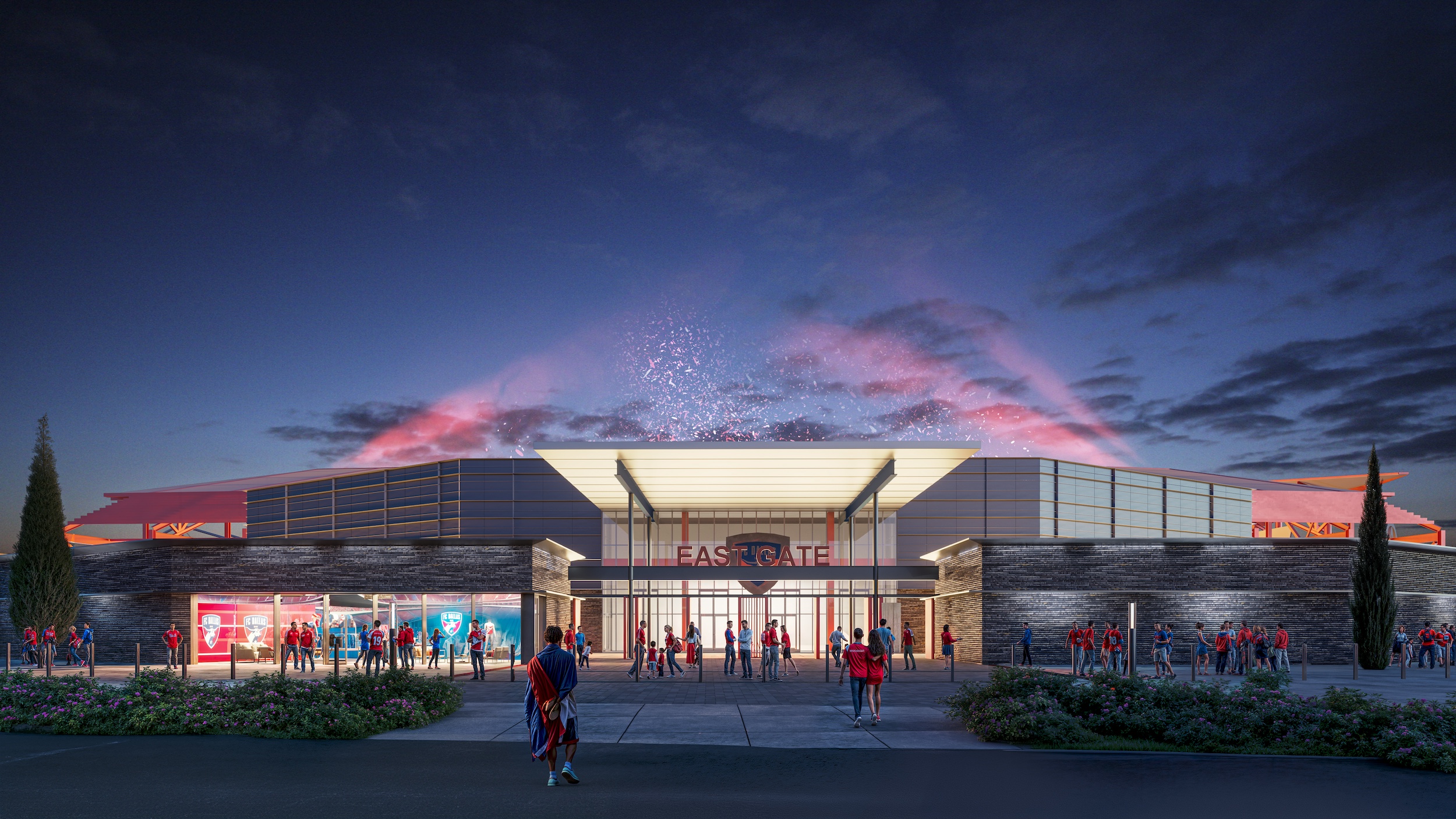
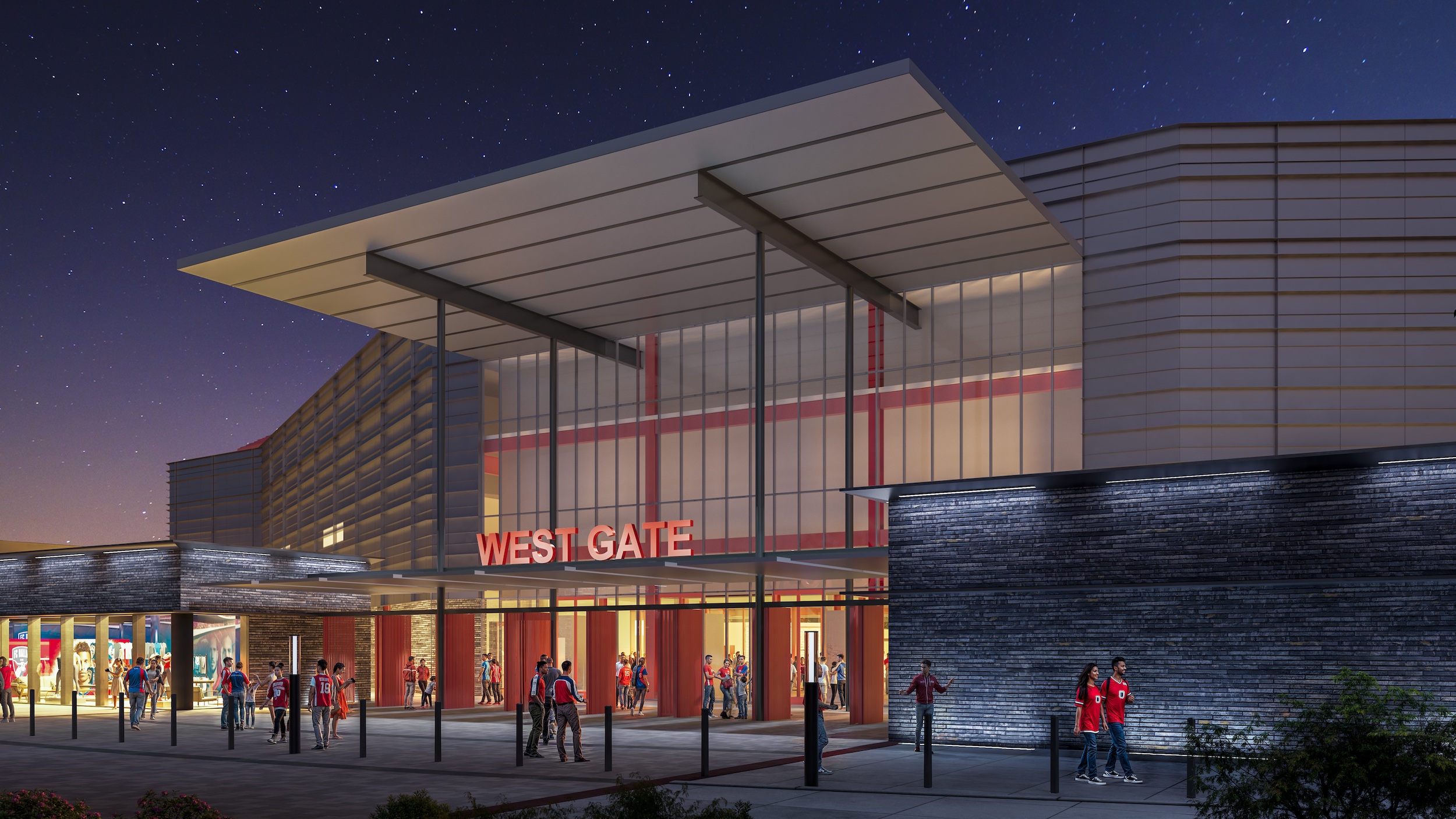
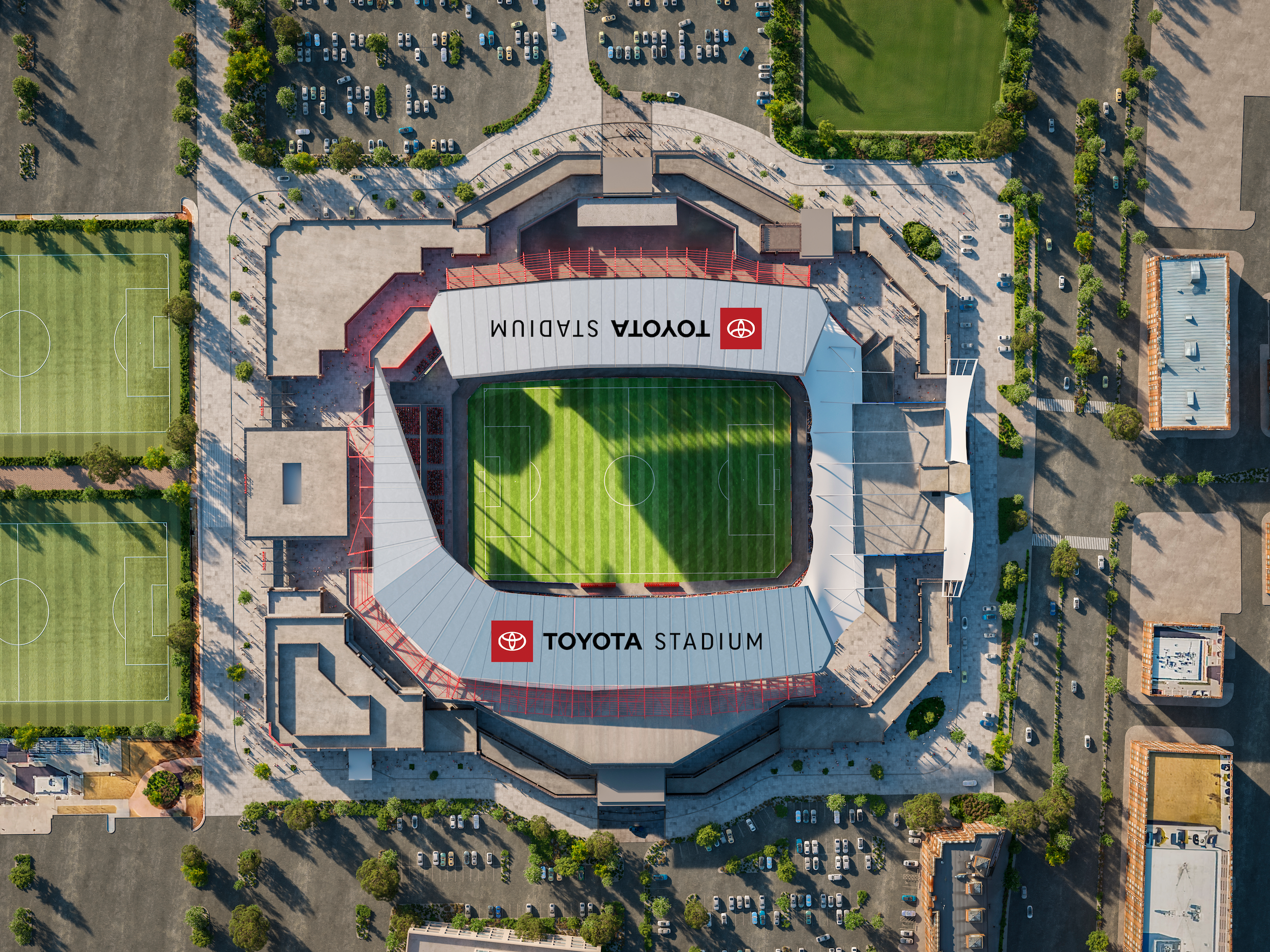
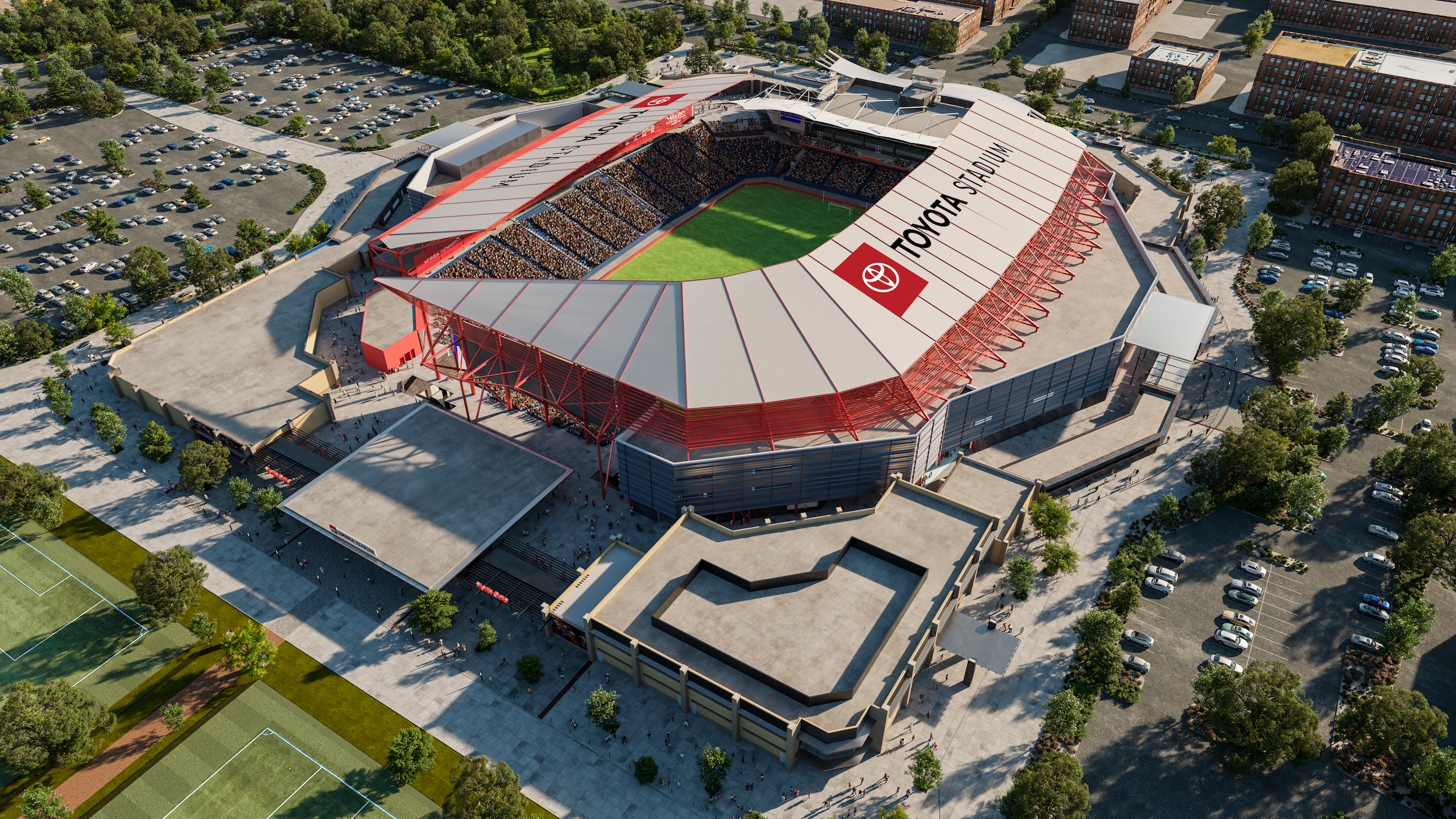
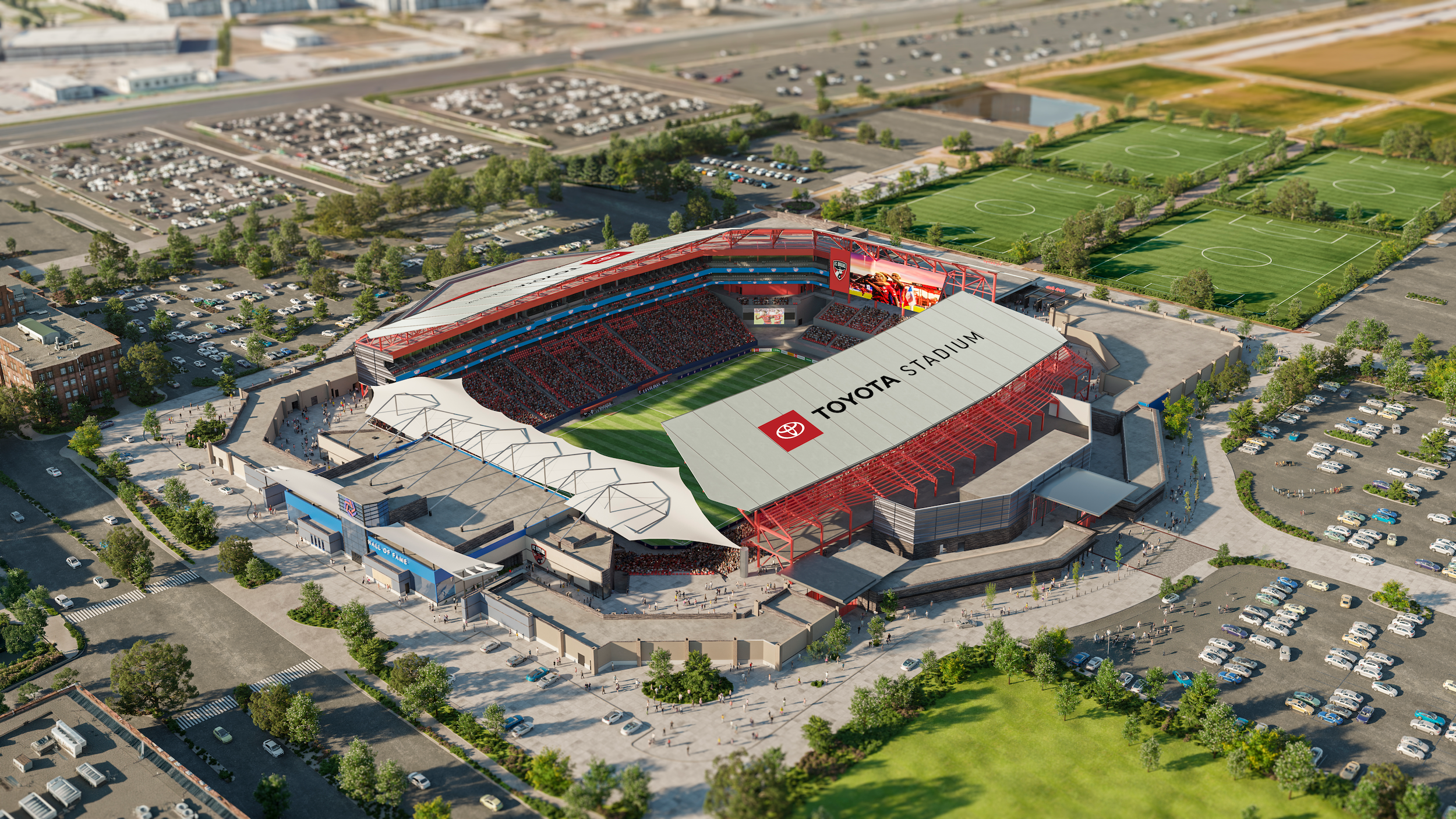
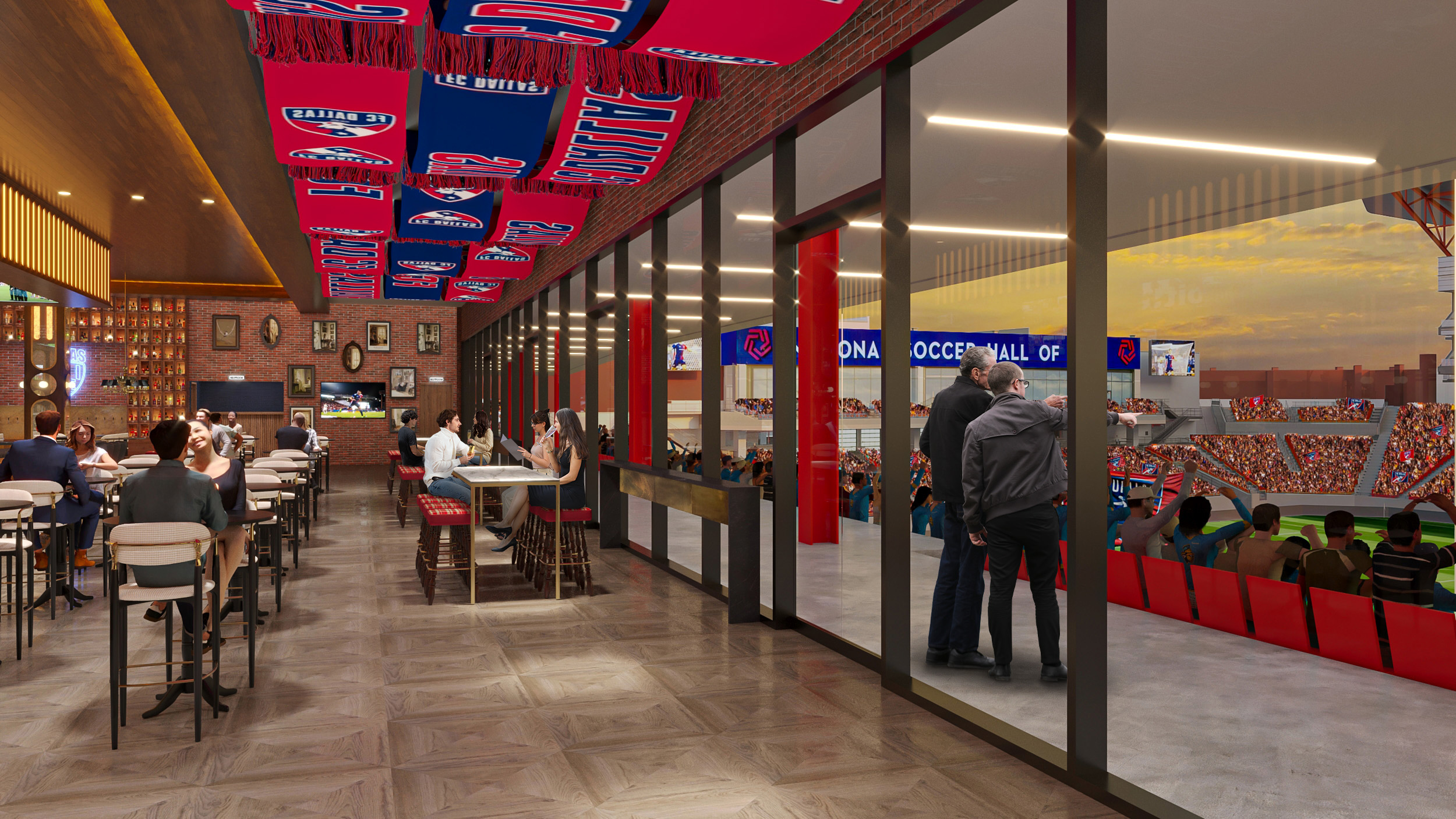
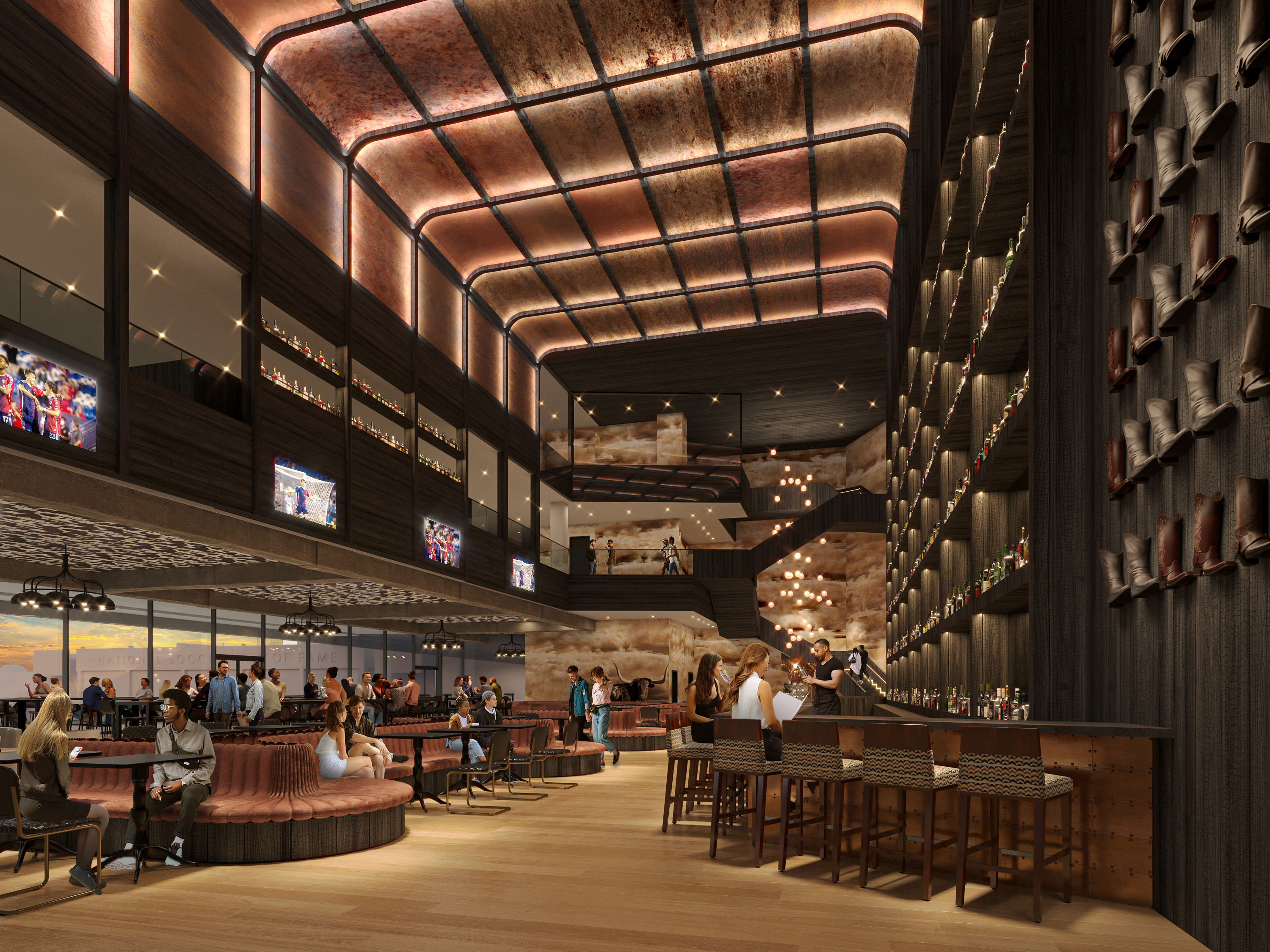
Renderings via FC Dallas
The increased stadium capacity also means we’re going to see the stage on the North End go away. I wonder if it means we’ll potentially see the return of the club’s supporter groups to that area of the stadium with a larger safe-standing section6. If the club and the supporters groups are able to do that, it would be a big win for everyone.
The only thing we’re not likely to see with this renovation is additional ‘decks’ of seats. The suite boxes will likely be the only new things that will be above the current sections of seats on the East and West sides. But in all honesty, up until this year, the club wasn’t selling out this stadium on the regular, so keeping it a venue under 25,000 seats is a smart move.
The bigger story for the non-soccer folks out there is the mixed-use development that will take place over the course of the next decade. We’re seeing this more and more in the Dallas-Fort Worth area with venues like this. The more they can be active for non-game days, the better it is for the area around it. Toyota Stadium is already a fairly busy area with the Toyota Soccer complex next to it, but getting a hotel and office space added to the area could be a drastic improvement that the club needed.
Perhaps the club will relocate their team offices to that mixed-use building down the road to free up space in the stadium for future suites. We’ll see, but I believe it’s a welcome addition to the complex, even though it entails significant construction for the foreseeable future.
Big D Soccer is a reader-supported publication. To receive new posts and support our work, consider becoming a free or paid subscriber.
I haven’t had a city government beat since college, so I am a tad rusty on how to read all the legalese here. Feel free to help out if you can understand it all. ↩
Yeah, a ‘majority’ of the seats. Keep that one in mind, folks. ↩
Aside from the shade addition, this one was a big one Dan Hunt stressed to me back in August about the stadium improvements. ↩
Yes, a brand new press box is exciting for your boy but it also means the next couple of years are going to be weird covering this team from various ‘tents’ and random setups at the stadium. ↩
The North Gate will be the primary entryway and focal point with new retail space. ↩
Based on the renderings we were given, you can’t see a ton of the North stand, so this is a TBA item for sure. ↩









